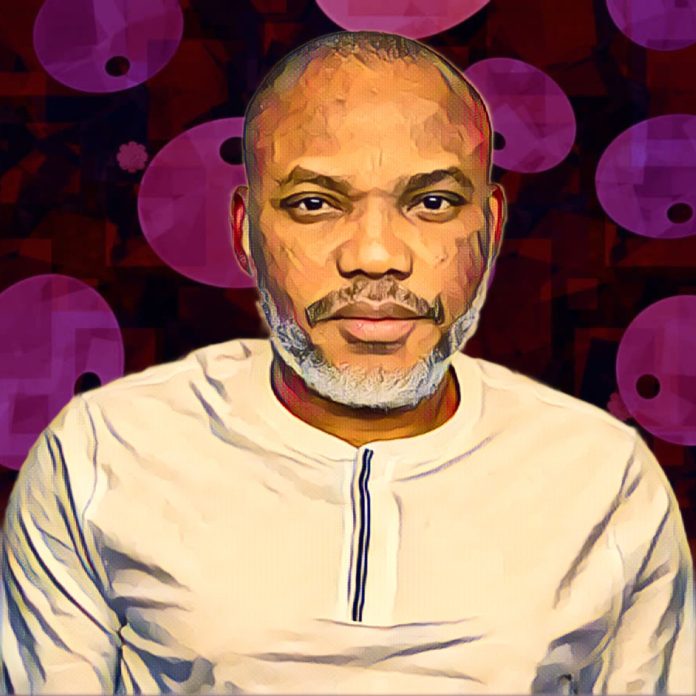KEY POINTS
-
Two new legal experts, including SAN Paul Esokoro and Dr. P.K. Obi, have joined Nnamdi Kanu’s defense team, bringing the total number of lawyers to 20.
-
Kanu is facing terrorism and treason charges in a high-profile case with deep political and ethnic implications in Nigeria.
-
The expanded legal team underscores the seriousness of the case and the symbolic weight of Kanu’s trial within national discourse.
The legal team defending Nnamdi Kanu, leader of the Indigenous People of Biafra (IPOB), has expanded yet again with the addition of two new high-profile legal minds, as the controversial terrorism case continues at the Federal High Court in Abuja.
Confirmed on Thursday by Kanu’s Special Counsel, Barrister Aloy Ejimakor, the newest additions include Senior Advocate of Nigeria (SAN) Paul Esokoro and legal scholar Dr. P.K. Obi. Their appearance in court during Kanu’s latest session marks a growing legal coalition amid one of Nigeria’s most closely watched and politically charged trials.
“Paul Esokoro (a Senior Advocate of Nigeria) and Dr P. K. Obi (an accomplished academic) have joined the ever-expanding legal team of Mazi Nnamdi Kanu,” Ejimakor announced after the proceedings.
High-profile legal firepower backs Kanu
The latest appointments bring the number of Senior Advocates of Nigeria representing Kanu to seven and raise the total number of lawyers involved in his defense to 20.
This growing bench of legal expertise signals the increasing complexity and gravity of Kanu’s trial, which has stirred national debate and international interest.
Earlier, on April 28, SaharaReporters had revealed that four other SANs—Prof. Onyechi Ikpeazu, Emeka Etiaba, Mela Audu Nunghe, and Dr. Joseph Akubo—had joined the defense team. These names were added to an already formidable list that includes Chief Kanu Agabi and Uchenna Njoku.
The Federal Government has accused Kanu of terrorism, treasonable felony, inciting public unrest, and broadcasting anti-state messages from exile, which allegedly led to violence and destruction in several southeastern states.
His trial resumed earlier this year following his controversial extradition from Kenya in 2021 under circumstances his lawyers have described as a violation of international law.
Observers say the composition of Kanu’s legal team reflects the wider legal, political, and humanitarian implications surrounding the case. Some human rights organizations, both local and international, have criticized the Nigerian government’s approach, urging fair trial standards and due process.
“This is not just a legal trial—it’s a political symbol,” noted Dr. Vivian Nwachukwu, a constitutional law expert at the University of Nigeria, Nsukka. “The presence of so many Senior Advocates reflects not only the seriousness of the charges but also the symbolic weight this case carries for the Biafran movement and Nigeria’s federal integrity.”
The IPOB, which Kanu leads, has been proscribed as a terrorist organization by the Nigerian government, but many of its supporters—especially in the southeastern part of the country—view the group as a legitimate self-determination movement. Kanu’s arrest and continued detention have sparked recurring protests and sit-at-home orders in several Igbo-majority states.



